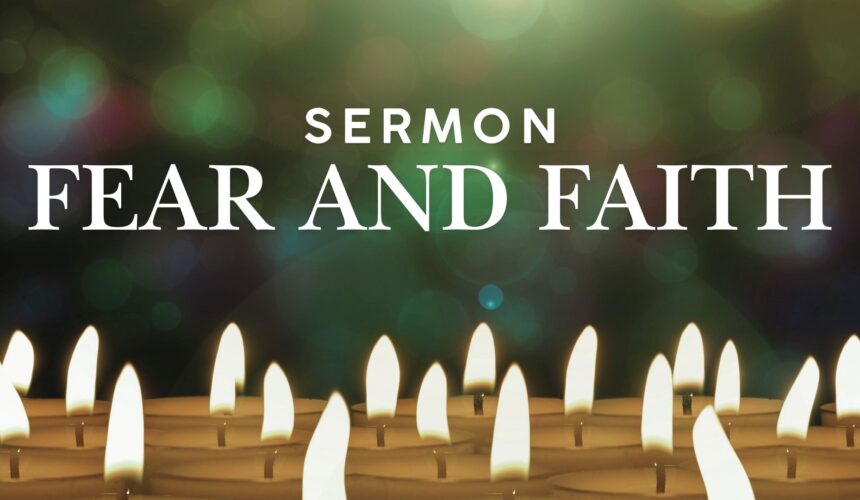Fear and Faith
University Park UMC
All Saints Weekend
November 3, 2024
Hebrews 12:1 – 2
I imagine some of you are familiar with the work of Thich Nhat Hanh. Thich Nhat Hanh was a Vietnamese Buddhist monk, a teacher and an author who passed away in 2022 at the age of 95. Nhat Hanh first came to prominence when he was exiled from Vietnam for his protest against the Vietnam war, his refusal to take a side, his consistent advocacy for peace. In 1967, Martin Luther King Jr. nominated Thich Nhat Hanh for the Nobel peace prize. In his nomination letter, King wrote that he knew of no one more worthy of the award than “this gentle Buddhist monk from Vietnam.” Over the past 20 years or so, the idea of “mindfulness” has become almost a cliché in spiritual writing and teaching. But one of the reasons it caught on in the first place was that Thich Nhat Hanh taught it in the Buddhist communities he founded in this country and in Europe.
There’s another concept in Buddhist thought that’s often called “dependent arising.” I heard once from a person who studied with Thich Nhat Hanh about how he explained the idea. He would hold up an object, say a blank piece of white paper. And he would ask his students, “what is this?” And they would say, well, it’s a piece of paper. Nhat Hanh would say, “no. This is the tree that grew in the forest. This is the water and the soil that nurtured the tree, the sunshine that shone down on it. This is the labor of the person who cut the tree and stripped the bark, and the labor of the people who transported it to the paper mill. This is the work of people in the mill and the electricity that provides energy to run the machinery in the mill. This is the water and the bleach the mill uses…” And so on, right?
The point, of course, is that if we extend that logic far enough, we can say truthfully that anything or anyone, including us, exists only because a vast, intricate network of creation has brought us here. And everything, including us, is in the process of changing. Everything is connected.
Now, that’s a Buddhist insight. But I think it’s also a Christian one. To put it in terms of our faith, we might say that God is not finished creating; that God’s creativity continues in every second; that every element of God’s creation is interdependent and always has been. And I think that’s especially true of people. We are interdependent. We are who we are, we have the lives we do, because of our connections to other people.
Today is All Saints Sunday. In the traditional Christian calendar, All Saints Day and All Souls Day are November first and second. We set them aside to remember and honor and give thanks for the people who came before us: those who taught us the ways of God, those who helped make us who we are.
This morning’s scripture reading is a classic All Saints day text taken from the Biblical Book of Hebrews. No one knows who wrote this book. It’s thought that it was written somewhere between the years 60 and 95 to a group of Christians who were deeply familiar with Jewish tradition and who loved Hebrew scripture, because the whole book rings with quotes and references from what we would call the Old Testament, one after another.
Just before the excerpt we heard, the entire chapter, chapter 11 of Hebrews, is dedicated to remembering people who came before those first century Christians for whom Hebrews was written. The author refers to Noah, Abraham, Moses, Samson, David, a woman from Jericho named Rahab, and a whole long list of people that spans more than 1500 years of Jewish and early Christian history. And even though all those people lived in different times and places and situations, Hebrews tells us they had one thing in common, and that one thing is faith. The author writes, “Faith is the assurance of things hoped for, the conviction of things not seen.” Every person that Hebrews lists in Chapter 11 is remembered because they dedicated themselves to a world they chose to believe God was in the process of creating, but which they could not see yet. Faith is the conviction of things not seen – yet.
I don’t know how you’ve been feeling lately, but If I had to guess, I’d guess most of us are feeling a little edgy as we approach election day this week. It’s not exactly a Sherlock Holmes level deduction to notice that our national political conversation has become vulgar and hateful. Political violence is on the rise. Racist and anti-semitic hate crimes are on the rise. People trust each other less. People are arming themselves against each other.
Maybe you heard a story on Colorado Public Radio this week, about a group trying to be sort of the leftist alternative to the NRA, the National Rifle Association. They call themselves the SRA, which stands for Socialist Rifle Association. (You can’t make this stuff up, right?) Socialist Rifle Association members are political liberals, and when they were interviewed in the radio broadcast, they voiced concern that they might be violently attacked because of their political beliefs or who they are. So they’ve decided to buy guns so they can defend themselves by shooting back. Like the majority of first-time gun owners today, these people are buying guns for self-protection. I understand that’s their right and all that. But I wonder: how did we get to this point, where American citizens feel like we need to arm ourselves against each other, because we’re having an election?
Yeah, I’d say things are a little tense right now.
So maybe at times like this, it’s helpful to remember that this is not the first scary, painful time the people of God have experienced. Maybe it’s helpful to remember that wonderful list of faithful people in Chapter 11 – people who lived through harder times than this, and yet who still managed to live in hope. Maybe it’s helpful to remember that we are surrounded by that great cloud of witnesses, encouraging us to run the race set before us, looking to Jesus, the pioneer and perfecter of our faith.
I believe we are called to keep faith with those who came before us. There are lots of ways we can do that. We can educate ourselves so we’re less likely to fall victim to misinformation and the way it can pit us against each other. We can pray, allowing God to shape us into more compassionate, more mindful people, to help stem the rising tide of rage and mistrust that threatens to overwhelm us. We can develop this church as a living example of people from different backgrounds and political views who can treat each other with respect and compassion and maybe even with love.
But no matter how we choose to push back against this rising wave of hatred and toxicity, we have the opportunity to be the ancestors our descendants need. We can be the cloud of witnesses for them. That’s not because we see exactly where all this is going. It’s not because we have perfect confidence that everything will be rainbows and unicorns after Tuesday. (I’m pretty sure it won’t, myself.) But we are called to be the cloud of witnesses for those who come after us because we are confident that our God is still creating, that creation is not over. Our God is at work whether we can see it or not; and we are invited to be part of that work.


